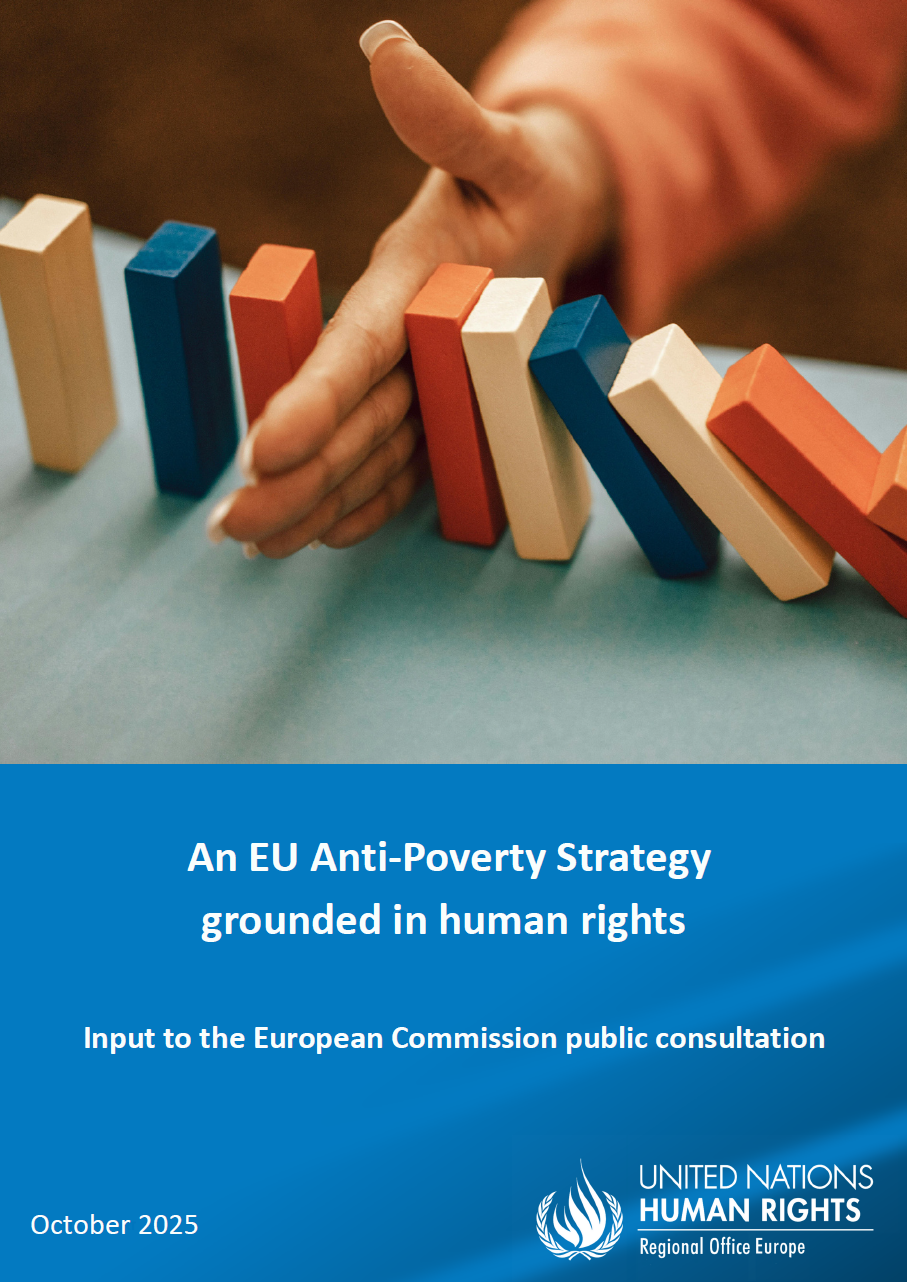
Advocating for a Human Rights-Based EU Anti-Poverty Strategy
The Office of the United Nations High Commissioner for Human Rights (OHCHR) recently published its contribution to the EU Anti-Poverty Strategy. It draws on insights from an expert roundtable organized by OHCHR in October 2025 and sets out recommendations to help shape a strategy grounded in human rights.
In this view, poverty is not just a lack of financial resources, but a denial of rights. It affects access to housing, education, healthcare and other social rights. It can be both a cause and consequence of exclusion, and disproportionately affects children, persons with disabilities, older women, Roma and migrant communities, and those in precarious work.
Addressing poverty is more than a policy choice: it is a legal obligation under international treaties ratified by all EU Member States. Through key recommendations to the EU Strategy, this document advocates for a human rights-based approach to poverty, shifting the narrative from charity to legal entitlements.
Key Recommendations
- Grounding in a human rights-based approach to shift the narrative from charity to rights.
- Addressing child poverty as a central priority and strengthening the Child Guarantee.
- Ensuring equal access to community services such as healthcare, education, housing, transport, and social support. A Housing First approach and adopting a life course approach can drive systemic change and ensure continuous support.
- Strengthening social protection by supporting Member States to expand coverage, adequacy, and accessibility, as well as promoting automatic enrolment and tackling non-take-up of benefits.
- Tackling in-work poverty by aligning wage policies and living wage standards, and reforming the system to avoid property trap.
- Countering discrimination and stigma by recognising socio-economic discrimination explicitly. Map those most left behind and challenge harmful narratives around poverty.
- Ensuring accountability by setting binding targets and timelines, encouraging national strategies aligned with EU goals, and supporting civil society and human rights bodies in monitoring.
- Enabling participation and involving people experiencing poverty in shaping and implementing the Strategy. Supporting civil society organisations working with affected communities.
- Aligning with existing frameworks to ensure coherence with EU and international commitments, including the European Pillar of Social Rights, the SDGs, and UN human rights instruments.
- Promoting Universal Standards and using UN Guiding Principles on Extreme Poverty and Human Rights and treaty obligations to benchmark progress. Ensure EU socio-economic governance supports rights.
OHCHR remains ready to support the European Commission in building a Strategy that is inclusive, accountable, and rooted in the dignity of all people.
